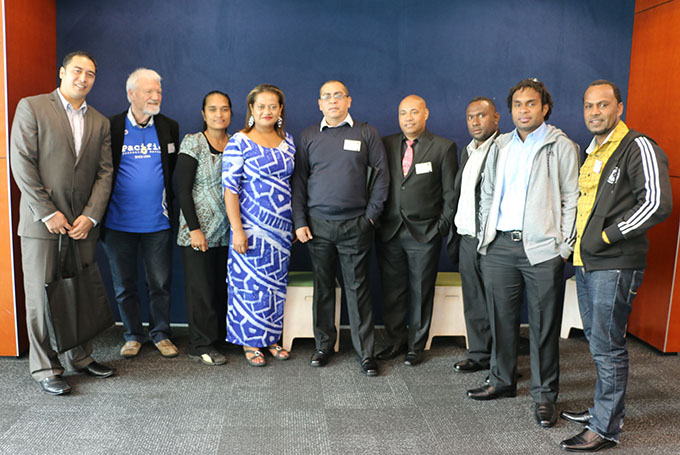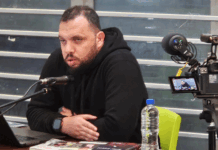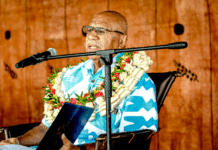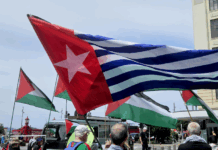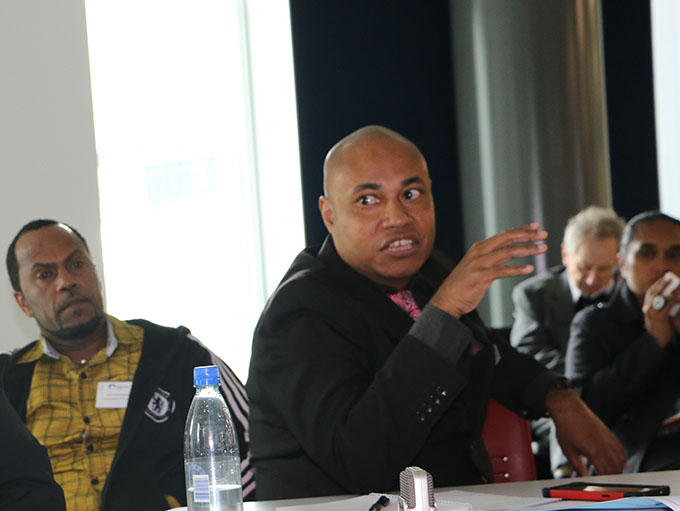
By Kendall Hutt, Husain Malvi, Ami Dhabuwala and TJ Aumua
Media experts from around the Pacific region held a series of discussion panels at the preconference leading up to the 4th World Journalism Education Congress held at the Auckland University of Technology this week. They spoke to audiences about the media challenges in their homeland in hope to raise the quality of the Fourth Estate in the South Pacific.
Pitfalls of PNG coverage
The president of Papua New Guinea’s media council highlighted ongoing challenges facing the government and media educators in the panel discussion.
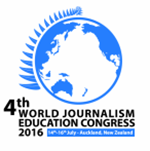 In touching on the challenges to journalism education in Papua New Guinea, Alexander Rheeney, also the editor-in-chief of the Post-Courier, addressed pitfalls in the reportage of the shooting of several University of Papua New Guinea students by police last month.
In touching on the challenges to journalism education in Papua New Guinea, Alexander Rheeney, also the editor-in-chief of the Post-Courier, addressed pitfalls in the reportage of the shooting of several University of Papua New Guinea students by police last month.
Rheeney said the reportage was a question of quality from the media and he highlighted the need for investigative reporting.
“It has been a good wake-up call for the industry and we need to pull up our socks.”
Rheeney’s comments come after this week’s “twist” made by the Supreme Court, ordering Parliament reconvene to vote on the no-confidence motion lodged against Prime Minister Peter O’Neill regarding allegations of corruption
Media reports say O’Neill remains confident he will survive the motion scheduled for this Friday.
Rheeney also touched on challenges facing journalism educators in Papua New Guinea, namely the flow-on effects from a “drastic” decline in the quality of high school graduates over the past 20 years in areas such as literacy.
Anonymous source risks
Solomon Star reporter, Eddie Osifelo, talked about the challenges faced by local newspapers publishing anonymous sources in their stories.
According to Osifelo, journalists are forced to do stories on anonymous sources because government officials do not want their names published as they fear their job might be at risk.
He pointed out that as many as 133 stories with anonymous sources were published in two big Solomon Island newspapers between the periods of October and December 2014.
Osifelo said some of the ways articles had referred to anonymous sources were, “close sources”, “eyewitness” or an “insider”.
“In certain kinds of stories, informants would not talk unless they are assured of anonymity,” Osifelo said.
He explained politicians and individuals did not want to see anonymous sources appearing on stories because it questioned the credibility and ethics of journalists.
But he added that there was no Freedom of Information law in the Solomon Islands that enabled media to access confidential information from the government.
The Solomon Star and Island Sun have been faced with many challenges ranging from legal threats, compensation, harassment and court battles because of publishing anonymous sources in their stories.
He said media would still continue to rely on anonymous sources in years to come if nothing was done to improve the situation.
Digital Divide
Maria Sagrista, a lecturer at Divine Word University, gave insights into the digital divide and its effects on journalism education in Papua New Guinea.
“There are 350,000 Facebook users in PNG,” Sagrista said.
However, they are lacking content related skills that include ability to access information needed and efficient use of these platforms to achieve specific targets or solutions. she explained.
“Some tertiary institutes do not have free internet access for students. They have limited availability of computers and their academic staff admit they have no experience with the internet.”
Sagrista said digital literacy is crucial to become engaged with the new information age and knowledge-based society.
There are many issues in PNG that creates problems to integrate the new technologies into teaching and learning practice.
Power structure
“Technology challenges the traditional power structure. Lecturers feel threatened by the use of technology because [in most cases] students are more digitally literate which challenges their authority and status power.”
According to Sagrista, who acknowledged this was not a specialist area for her, uncertain infrastructure, political power and different understanding of priorities and redefinition of appropriate pedagogy are a few of them.
As the numbers of online news users are increasing, she emphasised “reinventing curriculum for journalism education”.
Sagrista concluded with some solutions like having libraries/mobile libraries, internet advisor, sharing devices and connections, changing perceptions of lectures and students, adapting journalism education curriculum in PNG.
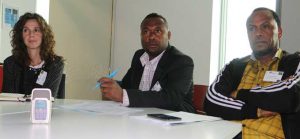
Professionalism in Vanuatu
Dave Mandavah, coordinator of the Vanuatu Institute of Technology (VIT) journalism school presented his research paper, which focuses on the two-year Journalism and Media diploma course at the institute.
Starting in 2009 with funding from the Pacific Media Assistance Scheme (PMAS) the course was originally intended to improve and continue the professional development of current media practitioners.
However a challenge since the beginning has been the large intake of students with little or no media experience, Mandavah said.
“Working journalists said the course was too expensive and the time schedule was ‘off’.”
Despite the “missmatch” between the course content and the student’s needs, Mandavah said the hard work and dedication of the students had meant they had been able to tailor the course to suit their needs.
But suitable media candidates were vital to help improve the current media climate in the island.
Breaking ‘societal gender power’
Mandavah said a positive outcome has been that most students had been females.
Something he described as the course’s “biggest challenge but also its biggest success”.
This is because females are dominated by a male patriarchy, he said adding “they [females] are voiceless in Vanuatu”.
He explained that despite the males’ “societal gender power”, the course had given the female students the skills to be represented and play a significant role in society.
